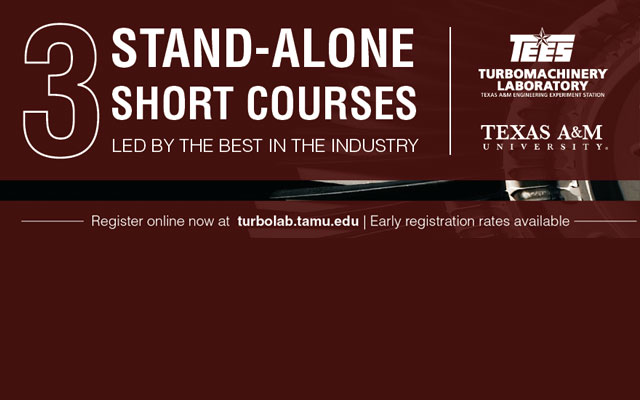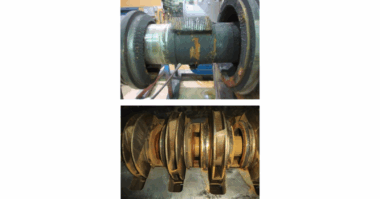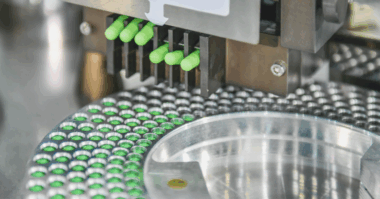The Turbomachinery Laboratory (Turbo Lab) will offer three continuing education short courses in Houston for both entry-level and experienced engineers in January and March.
The Turbo Lab, a center of the Texas A&M Engineering Experiment Station (TEES) and The Texas A&M University System, has offered short courses since 1995, building upon Texas A&M University’s tradition of continuing education and professional development.
Each short course offers continuing education unit (CEU) credits and is taught by one or more field experts with broad industrial knowledge. Attendees glean valuable industry insights to take back to their organizations, and add to their professional network with the sharing of ideas, questions and experiences.
“The stand-alone short courses offer attendees the opportunity to delve deep into specific subject matter,” said Dr. Dara W. Childs, director of the Turbo Lab. “The courses are presented by instructors with extensive relevant backgrounds to the course materials including troubleshooting, diagnosis and testing.”
Early registration discounts are available through Dec. 15 for the Machinery Vibrations and Rotordynamics course, and through Feb. 2 for the Centrifugal Compressor Operations and Rotordynamics courses.
Courses Offered
Machinery Vibrations and Rotordynamics
Date: January 9-13, 2017 | Houston, TX
CEU Credits: 3.0
The Machinery Vibrations and Rotordynamics short course offers a practical approach to understanding basic vibration theory and using it to solve mechanical vibration problems. Rotordynamics terminology in common use will be defined and explained, including critical speeds, critical speed inversion, unbalance response and rotordynamic instability.
Who should attend?
The course offers concepts and techniques for engineers involved in design, operation and maintenance of rotating equipment. Participants should have experience with rotating machinery, and a bachelor’s degree or equivalent knowledge of basic college-level mathematics is assumed.
Instructors:
Dr. Dara W. Childs – Turbo Lab Director
Dr. Bryan Murphy – President of RMA, Inc.
Dr. Luis San Andres – Turbo Lab Associate Director
Dr. Fouad Zeidan – Independent consultant, former president/owner of KMC Bearings, Plus, Inc.
Additional lectures with broad industrial experience may also speak.
Centrifugal Compressor Operations for 21st Century Users
Date: March 21-24, 2017
CEU Credits: 2.8
The Centrifugal Compressor Operations short course will equip novice and experienced oil and gas industry professionals with state-of-the-art practical knowledge of centrifugal gas compressors. Centered on centrifugal gas compression, the course begins with an introduction of basic centrifugal compressor technology (including an overview of the components and nomenclature). It progresses through the design and selection processes with an overview of the various analytical tools employed. It concludes with project installation, commissioning and maintenance.
Who should attend?
This course is intended for novice and experienced oil & gas professionals with basic knowledge of centrifugal gas compressors.
Instructors:
Jigger Jumonville – Owner of Jumonville Engineering
J. Jeffery Moore – Principal Engineer, Southwest Research Institute
Peter C. Rasmussen – Owner of Rasmussen Machinery Cons. LLC
James M. Sorokes – Principal Development Engineer, Dresser-Rand, A Siemens Business
Rotordynamics
Date: March 21-24, 2017
CEU Credits: 2.8
The Rotordynamics short course focuses on turbomachines, including turbines, compressors, expanders, motors, pumps and generators. Attendees will leave with an understanding of the rotordynamics of these machines and their subcomponents to help select, analyze, troubleshoot and repair them for maximum reliability and minimum vibration problems. The course is not math-intensive and includes histories and workshops for hands-on evaluation of actual machines.
Who should attend?
The course is intended for beginning and intermediate engineers in the petroleum, chemical, power and gas industries, as well as individuals interested in the dynamics of rotating machinery.
Instructor:
Malcom Leader – Turbomachinery consultant, owner of Applied Machinery Dynamics
Dry Gas Sealing Systems
Date: March 21-23, 2017
CEU Credits: 1.9
This two and a half day short course considers major aspects of dry gas seal systems applications and operation and provides a review of dry gas seal theory, an in-depth analysis of system application and design, and a guide to seal and system component selection. Attendees will also get an overview of system reliability, safety and troubleshooting.
Who should attend?
The course is intended for entry-level to intermediate engineers.
Instructors:
Vladimir Bakalchuk – Global Technology Transfer Lead at Flowserve Corporation
Jim McCraw – Senior Rotating Equipment Engineer at BP America, Inc.
Rich Hosanna – Manager of T28 Applications Engineering at John Crane
To Register
To register or to learn more about the courses and instructors, visit turbolab.tamu.edu or contact Debbie Maggs at debbie@turbo-lab.tamu.edu or 979-845-7114.
In addition to stand-alone short courses, the Turbo Lab offers one-day short courses in conjunction with the Turbomachinery & Pump Symposia (TPS), held each September in Houston. TPS, presented entirely by the Turbo Lab, hosts the premier professional continuing education program relied upon by rotating equipment engineers and technicians worldwide, spanning oil and gas, petrochemical, power, aerospace, chemical and water industries.
The Texas A&M Engineering Experiment Station (TEES) Turbomachinery Laboratory conducts basic and applied research into important problems of reliability and performance of turbomachinery—rotating machinery that extracts or adds energy to fluids, including everything from classic Dutch windmills to the space shuttle’s main engine turbopumps and compressors. The Turbo Lab offers engineering education through Texas A&M University’s Department of Mechanical Engineering, and provides continuing education opportunities to industry professionals at annual symposia and short courses, advancing Texas A&M’s land-grant charter tradition of education, research and service.




